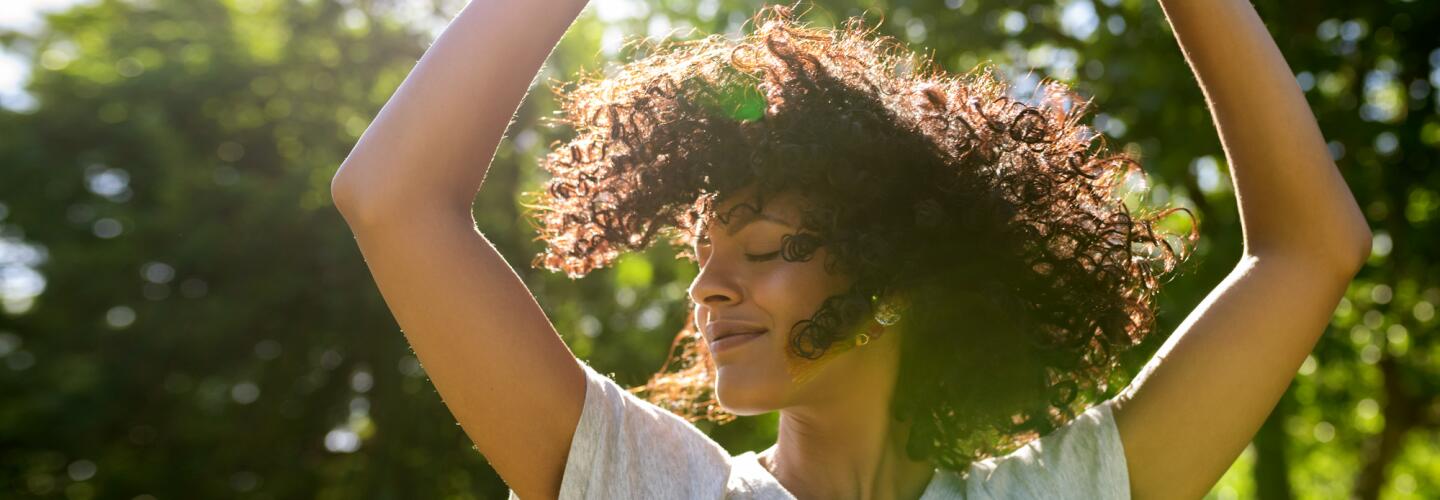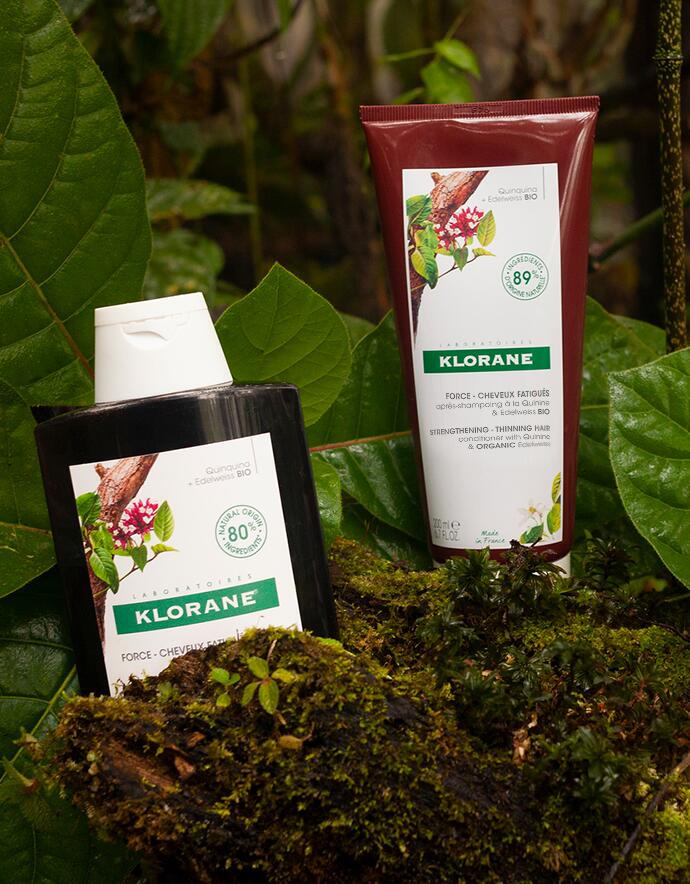Fortify your hair with naturally-derived ingredients

Fortify your hair with naturally-derived ingredients
Hair has a life of its own , so it has its little slumps as well as its bursts of energy. It all depends on what you give it to strengthen its vitality...

“We all inherit a hair heritage”
"Everyone has a hair heritage of more than 100,000 hairs, the colour and shape of which are genetically determined: brown, blonde, curly, ginger... Like at least one of your parents. Every day, we all lose a certain amount of hair, and that’s perfectly normal. But the care you take of your hair and certain external factors such as stress, pollution or the climate can affect the vitality or quality of your hair (and cause temporary hair loss). It is therefore important to take into account your hair's heritage when building your hair care routine to ensure that you are giving it everything it needs, over the years”
The hair cycle
Healthy hair is renewed continuously during what is called the hair cycle, which occurs 25 times in our lifetime. This cycle is divided into three main phases:
- The anagen phase, which is the growth phase of the hair (it lasts 3 years in men vs. 5 in women).
- The catagen phase, or regression phase (2 to 3 weeks) during which the hair no longer grows.
- The telogen phase (3 months) which corresponds to the phase of hair elimination.
We could say that hair sprouts, grows and then falls out. The hair follicles, although they each follow the same life cycle, are independent of each other: this is why the hair does not all fall out at the same time. When you know more about this life cycle, you can understand that it is normal to lose between 40 and 80 hairs per day.
What threatens your hair's vitality
Time is the main enemy: with age, the proper functioning of the hair cycle is disrupted.
85% of our hair is in anagen phase (growth phase). During this stage, the hair is alive. The keratin growth that constitutes its hair fibre is constant, and the hair root is strongly anchored. As we age, the growth phase becomes shorter and the hair follicles begin to produce thinner, less dense and less visible hair. This leads to permanent hair loss when the anagen phase stops completely. Men are then more likely to suffer from baldness, while women are more prone to loss of hair density.
The specific needs of ageing hair
Give your hair a little boost to strengthen it.
If you're experiencing a loss of density, you will need a suitable anti-ageing solution that redensifies the hair fibre and provides volume, thickness and texture. In any case, you will need a targeted product adapted to your hair's needs and to protect it more from external aggressions (pollution, excessive heat, aggressive hair dyes, etc.) so as not to aggravate its condition, as well as to strengthen it.
I’m experiencing hair loss if...
More than 50 hairs fall out every day, I find lots of them on my pillow or my brush, my hairline is starting to recede.
If you are experiencing this, please seek your doctor's advice.
How can we strengthen thinning hair naturally-derived ingredients?
Our secret weapon is quinine. More specifically, its bark, which botanists have discovered has strengthening properties for the body, including the hair. We have made it the star ingredient of our anti-hair loss product range, combined of course with some expert advice for even greater effectiveness. Need a quinine shot to reboost and strengthen your hair? You’ve come to the right place.

Ingredients from mother nature for your hair
The active ingredients selected by our botanists for natural scalp care.
QUINQUINA
Quinquina, a tree native to South America, was brought to Europe in the 17th century. Quinine is extracted from its bark and is traditionally used as a tonic and astringent.
Hair: we sort fact from fiction.
Our experts and botanists answer your questions.
No, this is an urban myth. Wearing hats does not affect your hair growth, which is dependent on well-nourished hair follicles from the inside. However, it is advisable to let your scalp breathe from time to time!
Yes, hair loss can happen at any age, especially the kind linked to emotional trauma which can even affect children. The best solution is to consult a specialist, such as a dermatologist, who will be able to make a diagnosis and provide treatment.
Yes, even though it's less common, some women can suffer from hair loss (also known as alopecia). What differs is the age at which women are affected (normally after menopause) and the pattern of hair loss (thinning at the part line instead of the temples). Women often suffer from reactive hair loss (caused by hormonal imbalances or severe emotional stress), rather than progressive hair loss – more common in men.
NEWSLETTER
Nature often has the solution...
All our tips for taking care of yourself with products containing naturally-derived ingredients.


